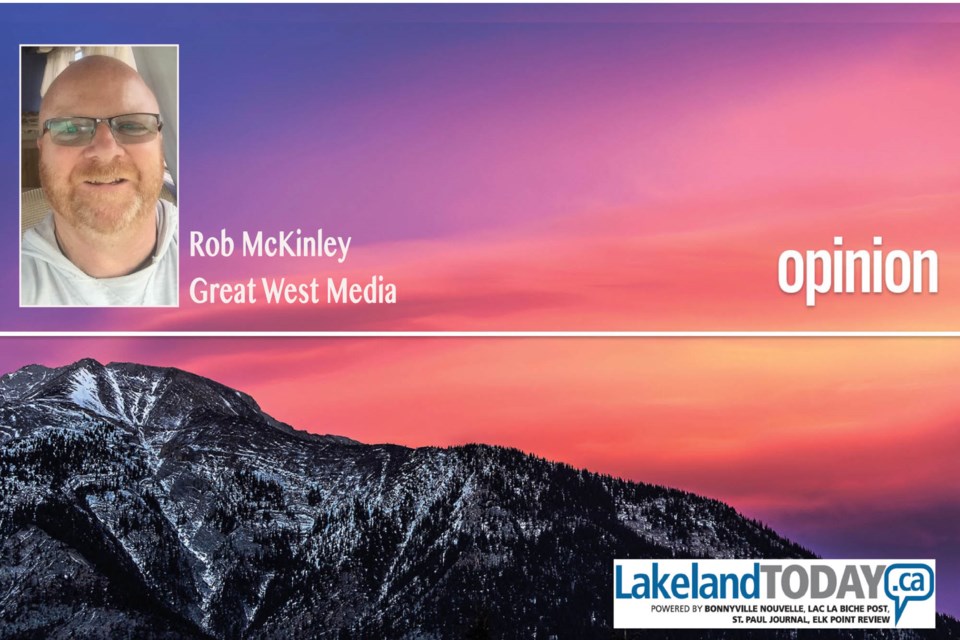1.35, 1.19, 1.24, 1.17 (plus GST).
Those are just some of the swings in prices for regular fuel seen across the Lakeland today. Some are even being seen across the street from each other.
It makes little sense. Why are Lac La Biche fuel stations constantly selling fuel at the highest prices? How can fuel stations operating across the street from each other in Bonnyville today have prices up to 11 cents per litre different than each other? Heck the two Petro-Canada stations in Bonnyville today are selling fuel at different prices. How is that justified?
It's frustrating for customers. And because these giant price discrepancies are mounted on giant 40-foot banners along our rural Main Streets — it's a giant-sized embarrassment for our communities. The signs may as well be saying, "Welcome — we are going to gouge you." Visitors to our community will likely think every purchase they may make in our little communities is tainted with the same, unexplained surcharge. Even locals notice the un-checked pricing, and often travel to larger centres for better deals — ironically, fuelling up at better prices while they are at it.
But before fuel retailers and their pump-pals get riled up about their challenges and industry costs and staffing costs, lighting, maintenance ... this isn't about private business not being able to make a buck — it's about the mystery behind how much is being made.
Grudgingly, we should expect slightly higher fuel prices in rural Alberta than the tighter markets in larger cities. That's simply a Business 101 formula where more competition means (or is supposed to mean) more attractive pricing, and lower product transport costs mean lower retail pricing. No, it's not the prices that are infuriating— it's the random nature of that pricing. In no other retail category are there daily — and unexplained — price swings at these levels. Consumers know that even with the rising prices of groceries, there is some semblance of reason to current price tags — even on heads of lettuce. A pair of shoes, a hockey stick or a hair cut doesn't go up in price 30 per cent on a Thursday, another 10 per cent on the following Sunday and then drop 15 per cent on Monday.
But we are told to simply accept those price swings when it comes to the fuel pumps. And worse yet, we're not told why, or how those head-shaking differences in price from one gas station to the next are formulated.
Over the last six months, the cost-per-barrel of WTI crude oil has dropped more than 35 per cent in value, trading at around $75 barrel this week. Industry officials say that more than 50 per cent of the retail pump price is based on that value alone. Across Canada, fuel prices at the pump have seen an equal percentage drop in prices since last summer.
So are our gas stations hurting? That's the thing. We don't know.
It's hard to feel pity for the fuel retailers when the prices drop — because they've convoluted the idea of retail pricing so badly, we're not sure what's happening anymore. Worse yet for those retailers — and it's another part of that Business 101 lesson — they have played an active role in tanking their own sales by creating a system offering no real sense of measure for their customers. The confusion has jaded many customers; travel plans have changed, wallets have been tapped, fuel-efficient vehicles have replaced higher consuming vehicles, and simple, pure annoyance has impacted their businesses. if demand for fuel drops as world oil reserves stay as they are, and commodity values continue to fall, prices at the pump will be forced to come down to bring customers back.
The issue is not a Lakeland-only one. Brian Jean, Alberta's current Minister of Jobs and Economic Development campaigned in his recent leadership bid that he would create a better retail fuel environment for Albertans. Last August, the Fort McMurray-Lac La Biche MLA called for studies and investigations into the entire process from pipeline to pump. Last week, Alberta NDP's Energy critic Kathleen Ganley said those investigations need to get rolling.
“Alberta’s NDP is once again calling for a full audit of gas prices." she said, explaining that January 1 marked the start-date of another "fuel tax" holiday announced by the UCP government — but few retail prices on those giant marquee billboards changed. "Albertans deserve to know what is driving cost, and to know that their government will take action to prevent any price gouging."
Fuel for thought.



